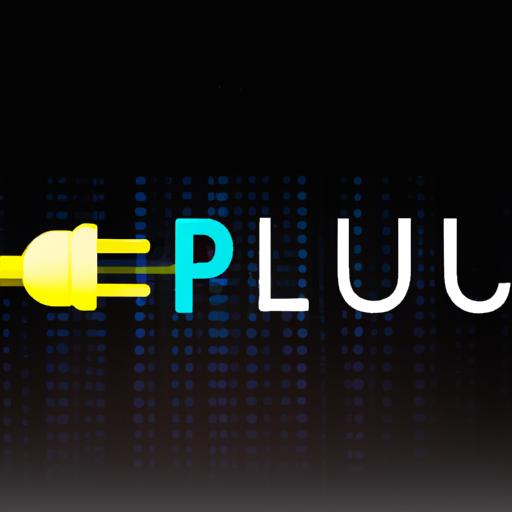What is the Best Software for Small Business?

In today’s digital era, software has become an indispensable tool for businesses of all sizes. However, for small businesses, choosing the right software can be a game-changer. It can streamline operations, boost productivity, and ultimately contribute to their success. But with countless options available in the market, how do you determine the best software for your small business? Let’s explore!
As a small business owner, you wear multiple hats and juggle numerous responsibilities. Time is of the essence, and efficiency is key. This is where software comes into play. It automates mundane tasks, simplifies complex processes, and empowers you to focus on what truly matters – growing your business.
Now, you might be wondering, what exactly can software do for my small business? Well, the possibilities are endless. From accounting and customer relationship management (CRM) to project management and beyond, software can revolutionize the way you operate. It can help you manage finances, track sales, nurture customer relationships, collaborate with your team, and so much more.
In this article, I will guide you through the top software options specifically tailored for small businesses. We will delve into different categories, exploring the features, pros, and cons of each software. By the end, you will have a comprehensive understanding of the software landscape, enabling you to make an informed decision that aligns with your unique business needs.
So, whether you’re a solopreneur or have a small team, get ready to unlock the potential of software for your business. Together, we will navigate through the vast sea of options and find the best software solution that will propel your small business to new heights. Let’s dive in!
Factors to Consider When Choosing Software for Small Business
When it comes to selecting the best software for your small business, there are several crucial factors to consider. Let’s explore these factors to ensure that you make an informed decision.
A. Cost-effectiveness and Scalability
Small businesses often operate on tight budgets, so it’s essential to choose software that offers cost-effectiveness. Look for solutions that provide value for money, offering the features you need at a price you can afford. Additionally, consider the scalability of the software. As your business grows, you’ll want software that can accommodate your expanding needs without incurring significant additional costs.
B. User-friendly Interface and Ease of Implementation
As a small business owner, you may not have a dedicated IT department. Therefore, it’s crucial to select software that has a user-friendly interface and is easy to implement. You don’t want to spend valuable time and resources on complex training or struggle with a clunky interface. Look for software that offers intuitive navigation, clear instructions, and minimal learning curves.
C. Integration Capabilities with Existing Systems
Chances are your small business already utilizes various systems and tools to manage different aspects of your operations. The software you choose should seamlessly integrate with your existing systems to avoid disruptions and streamline processes. Consider whether the software can connect with your accounting software, CRM, project management tools, and other essential platforms.
D. Security and Data Protection Measures
Data security is of utmost importance, regardless of business size. When selecting software, prioritize those with robust security measures in place. Look for features like encryption, secure data storage, regular backups, and user access controls. Additionally, check for compliance with industry standards and regulations to ensure your sensitive information remains protected.
E. Customer Support and Reliability
As a small business, you rely on your software to run smoothly and efficiently. In case of any issues or questions, prompt and reliable customer support is crucial. Look for software providers that offer responsive support channels, such as email, phone, or live chat. Additionally, read reviews and testimonials to gauge the software’s reliability and stability.
By considering these factors, you can narrow down your options and select the software that best aligns with your small business needs. Remember, software should be an investment that enhances your operations, productivity, and ultimately contributes to your business’s success.
Accounting Software for Small Business
Efficient financial management is crucial for the success of any small business. Keeping track of income, expenses, and cash flow is essential to make informed decisions and maintain a healthy bottom line. This is where accounting software comes into play, providing you with the tools and capabilities to streamline your financial processes.
Importance of Efficient Financial Management
As a small business owner, you understand the significance of staying on top of your finances. Accurate and timely financial data allows you to assess your business’s performance, identify areas of improvement, and make strategic decisions. With the right accounting software, you can automate tasks such as invoicing, expense tracking, and reconciliations, saving you valuable time and reducing the chances of errors.
Top Accounting Software Options for Small Businesses
Now that we recognize the importance of efficient financial management, let’s explore some of the top accounting software options available for small businesses:
1. Software A: Features, Pros, and Cons
Software A offers a comprehensive suite of accounting features tailored for small businesses. With its user-friendly interface and intuitive navigation, it is easy to set up and use. This software allows you to manage invoices, track expenses, generate financial reports, and even handle payroll. However, some users have reported limited customization options and a higher price point compared to other alternatives.
2. Software B: Features, Pros, and Cons
Software B is known for its robust accounting functionalities and scalability. It provides advanced features like inventory management, multi-currency support, and tax calculations. The software offers seamless integration with other business tools, allowing you to streamline your entire financial ecosystem. However, it may have a steeper learning curve and might not be suitable for businesses with basic accounting needs.
3. Software C: Features, Pros, and Cons
Software C is a cloud-based accounting solution designed specifically for small businesses. It offers a user-friendly interface, making it accessible even for non-accounting professionals. This software provides features like bank reconciliation, expense tracking, and financial reporting. However, some users have reported limited customer support and occasional system lags.
When choosing accounting software for your small business, consider factors such as cost, scalability, ease of use, and integration capabilities. Evaluate your specific business needs and compare these software options to find the one that best aligns with your requirements.
In the next sections, we will explore other essential software categories for small businesses, including customer relationship management (CRM) and project management. Stay tuned to discover the best software solutions to optimize your business operations!
Customer Relationship Management (CRM) Software for Small Business
In the world of business, building and nurturing strong customer relationships is paramount. It’s no secret that satisfied customers are more likely to become loyal advocates and repeat buyers. This is where Customer Relationship Management (CRM) software comes into play, enabling businesses to enhance their customer relationships and streamline sales processes.
A. Enhancing customer relationships and sales processes
CRM software acts as a centralized hub for managing customer interactions, sales pipelines, and marketing efforts. It provides a comprehensive view of each customer, allowing you to understand their preferences, purchase history, and interactions with your business. With this valuable information at your fingertips, you can tailor your approach, provide personalized experiences, and effectively address customer needs.
Moreover, CRM software streamlines sales processes by automating tasks, such as lead generation, contact management, and deal tracking. It helps your sales team stay organized, prioritize leads, and nurture relationships at every stage of the sales cycle. By automating repetitive tasks, your team can focus on building meaningful connections and closing deals.
B. Top CRM software options for small businesses
When it comes to CRM software, there are several options available in the market. Let’s explore some of the top CRM software options specifically designed for small businesses:
1. Software A: Features, pros, and cons
- Features:
- Contact management
- Lead tracking and scoring
- Email automation
- Sales forecasting
- Pros:
- User-friendly interface
- Affordable pricing plans
- Robust reporting and analytics
- Cons:
- Limited customization options
- Integration limitations with certain third-party apps
2. Software B: Features, pros, and cons
- Features:
- Contact and lead management
- Email marketing automation
- Task and activity tracking
- Social media integration
- Pros:
- Extensive customization capabilities
- Seamless integration with other business tools
- Intuitive user interface
- Cons:
- Higher price point compared to some competitors
- Steeper learning curve for advanced features
3. Software C: Features, pros, and cons
- Features:
- Contact and lead management
- Sales pipeline tracking
- Mobile app for on-the-go access
- Customer support ticketing system
- Pros:
- Affordable pricing options
- Easy to set up and use
- Great customer support
- Cons:
- Limited advanced features compared to more robust CRMs
- Integration limitations with certain software applications
By considering the features, pros, and cons of these CRM software options, you can find the one that aligns with your business requirements and budget. Remember, the best CRM software for your small business is the one that seamlessly integrates into your workflow and empowers you to build and maintain strong customer relationships.
Project Management Software for Small Business
Streamlining Project Planning and Collaboration
Effective project management is crucial for small businesses to ensure smooth operations and timely delivery of products or services. However, managing multiple tasks, deadlines, and team members can be overwhelming without the right tools. This is where project management software comes in, offering a centralized platform to streamline project planning and collaboration.
By utilizing project management software, you can easily create and assign tasks, set deadlines, track progress, and allocate resources. This enables you to stay organized, prioritize tasks, and ensure everyone is on the same page. With real-time updates and notifications, you can easily monitor project milestones, identify bottlenecks, and make necessary adjustments.
Top Project Management Software Options for Small Businesses
-
Software A: This robust project management software offers a wide range of features, including task management, time tracking, and team collaboration. With its intuitive interface and user-friendly design, it is suitable for small businesses with varying degrees of technical expertise. Pros of Software A include seamless integration with popular tools, customizable workflows, and comprehensive reporting. However, some users have reported occasional performance issues during peak usage times.
-
Software B: Known for its simplicity and ease of use, Software B is a popular choice for small businesses. It offers essential project management features such as task tracking, document sharing, and team communication. The software’s mobile app allows you to stay connected and manage projects on the go. Software B also provides customizable templates and automated workflows to streamline your project management process. However, it may lack some advanced features required by larger teams or complex projects.
-
Software C: With a reputation for robust project management capabilities, Software C caters to small businesses with complex projects and larger teams. It offers advanced features like Gantt charts, resource allocation, and budget tracking. Software C also provides integrations with other tools, allowing seamless collaboration across different platforms. However, its extensive features and learning curve might be overwhelming for smaller businesses with less complex project needs.
Remember, when selecting project management software for your small business, consider the specific requirements of your projects, the size of your team, and the level of technical expertise available. Each software option has its own strengths and weaknesses, so choose the one that aligns best with your unique needs and goals.
Stay tuned for the next section as we explore other essential software categories for small businesses!
Conclusion
In conclusion, finding the best software for your small business is crucial for optimizing operations and achieving growth. The right software can streamline tasks, improve efficiency, and enhance customer relationships. Throughout this article, we have explored various categories of software, including accounting, CRM, and project management, highlighting the top options within each category.
Remember, when choosing software, consider factors such as cost-effectiveness, scalability, user-friendliness, integration capabilities, security measures, and customer support. Assess your business needs and priorities to ensure that the software aligns with your goals.
By leveraging the power of software, you can automate repetitive tasks, gain valuable insights, and focus on strategic initiatives that drive your business forward. Embrace technology and empower your small business to thrive in today’s competitive landscape.
Now that you are equipped with knowledge about the best software options for small businesses, it’s time to take action. Explore the different software solutions mentioned in this article, read reviews, and even try out free trials. Remember, the best software for your business may vary depending on your specific requirements, so choose wisely.
Investing in the right software is an investment in the future success of your small business. So, go ahead and unlock the potential of technology to elevate your operations, boost productivity, and take your small business to new heights.
Happy software hunting, and here’s to your small business’s continued growth and prosperity!
Conclusion: So above is the What is the Best Software for Small Business? article. Hopefully with this article you can help you in life, always follow and read our good articles on the website: news.mail1s.com




